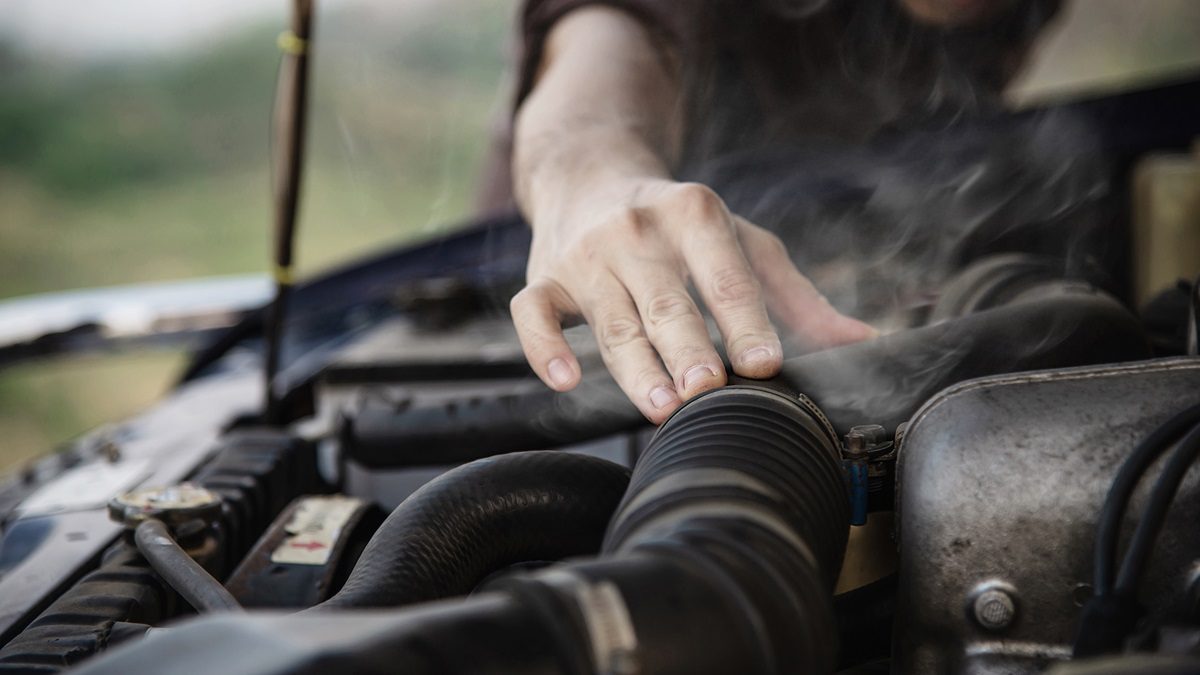Land Rover Engine Problems and How to Handle Them


Engines are the beating heart of any vehicle, and Land Rover engine problems can bring even the most adventurous drives to a halt. Many drivers love their Land Rovers for the style and power, but under the hood, some issues are more frequent than others. If left unchecked, small symptoms can lead to major breakdowns.
If you’ve noticed strange noises, warning lights, or sudden power loss, you’re not alone. Engine problems happen more often than you’d think. Understanding them early is key to preventing costly repairs and downtime.
Warning Signs You Shouldn’t Ignore
Knowing the early warnings of Land Rover engine problems can save your wallet and extend your vehicle’s life. These signs are often the engine’s way of asking for help before things get expensive.
Look out for:
- Check Engine Light Flashing or Staying On: Often a sign of engine misfires, sensor malfunctions, or emissions system issues. A flashing light typically indicates a more serious, active misfire that can damage your catalytic converter if not addressed quickly.
- Burning Smell or Smoke from the Engine Bay: This can indicate oil or coolant leaking onto hot engine components. A sweet smell might suggest a coolant leak, while a burnt oil scent could point to valve cover gasket or oil filter housing issues.
- Poor Acceleration and Power Loss: May point to failing turbochargers, fuel injector issues, or mass air flow sensor problems. This is especially common in diesel Land Rovers and becomes more noticeable during uphill driving or highway merging.
- Strange Noises During Startup: Ticking, knocking, or rattling noises may be caused by worn lifters, timing chain tensioners, or internal bearing issues. These sounds should never be ignored, especially if they get louder over time.
- Rough Idle or Shaking: Often connected to faulty spark plugs, ignition coils, vacuum leaks, or engine mount failure. Your vehicle might feel like it’s “shuddering” while parked or in drive.
- Visible Fluid Leaks on the Ground: Spotting dark brown, amber, or green fluids underneath your Land Rover could signal oil, coolant, or transmission fluid leaks. Consistent leaking often points to gasket or seal failure that worsens over time.
- Unusual Exhaust Color: White smoke might suggest coolant entering the combustion chamber (blown head gasket), while blue smoke signals oil burning inside the engine. Black smoke could mean too much fuel or a clogged air intake system.
- Unexplained Drop in Fuel Economy: If your gas mileage suddenly plummets, it could be due to inefficient combustion, clogged filters, or engine misfires. This is often an early sign of deeper Land Rover engine problems.
Ignoring these warning signs often leads to larger Land Rover engine repair bills and more downtime. Catching them early increases your chances of resolving the issue quickly and affordably before it turns into a full-blown mechanical failure.
What Are the Most Common Land Rover Engine Problems?
Engine problems often show up in familiar patterns across models and years. Some are minor annoyances, others are serious mechanical failures that demand urgent attention and immediate repair. Understanding these common issues helps owners stay proactive.
Here are the top problems Land Rover owners report:
1. Timing Chain Failure:
Engine timing chain failure is one of the most frequently reported issues, especially in Range Rover and Discovery models with V6 and V8 engines. The timing chain is critical to syncing the engine’s internal components, and once it begins to stretch or the tensioner weakens, you’ll hear a rattling noise from the engine bay. If ignored, this can result in misfires, poor engine timing, and catastrophic engine damage that may require a full rebuild. It’s one of the most expensive Land Rover engine repair jobs when left unchecked.
2. Coolant Leaks and Overheating:
Coolant leaks are a known concern, often caused by weak plastic components like coolant reservoirs or aged hoses. These leaks may seem minor at first, just a few drops on the driveway, but can lead to chronic overheating. Overheating puts pressure on the cylinder head and can result in a blown head gasket, one of the most severe and costly Land Rover engine problems. Regularly inspect your coolant level and never ignore a rising temperature gauge.
3. Oil Leaks from Gaskets and Seals:
Oil leakage is extremely common in Land Rovers, especially in models older than five years. Valve cover gaskets, oil pan seals, and even the rear main seal are known weak points. Oil may drip slowly, leaving stains on the driveway or burning off the engine block, creating a noticeable smell. Over time, these leaks can starve the engine of vital lubrication, damaging internal components and increasing repair costs significantly.
4. Excessive Engine Noise:
Knocking, ticking, or metallic tapping during cold starts is a red flag. In many Land Rovers, this noise is caused by worn lifters, faulty camshaft components, or early timing chain degradation. If ignored, it may lead to camshaft wear or even piston ring failure. These noises are often subtle at first but signal deeper mechanical wear that worsens with time. Regular inspections and oil changes using manufacturer-recommended oils help reduce this risk.
5. Turbocharger Failure:
Common in diesel variants like the Range Rover Sport TDV6, turbochargers can suffer from worn bearings, oil contamination, or boost leaks. Symptoms include reduced power, slow acceleration, excessive black or white exhaust smoke, and whining noises. Left unchecked, turbo failure can send debris into the engine, leading to even greater Land Rover engine repair costs.
6. Crankshaft Failure:
Most often reported in the Discovery 3, Discovery 4, and early Range Rover Sport models with the 2.7L or 3.0L diesel engines. Crankshaft failure is a catastrophic event where the engine suddenly seizes and shuts off, often while driving. It’s usually preceded by a knocking sound or oil pressure warning. In most cases, this requires a full engine replacement, making it one of the worst Land Rover engine problems in terms of cost.
7. PCV Valve Malfunction (Positive Crankcase Ventilation):
A faulty PCV valve can cause excessive oil consumption, rough idling, and poor fuel economy. In some cases, it may trigger check engine lights due to emissions-related issues. A malfunctioning PCV system also puts pressure on seals and gaskets, accelerating oil leaks. Replacing the valve early can prevent multiple downstream failures, especially on supercharged engines.
8. Mass Air Flow Sensor Failure:
A dirty or failing MAF sensor disrupts the air-fuel ratio, leading to rough idle, stalling, and hesitation during acceleration. Land Rovers with high mileage or infrequent filter changes are most at risk. Though the sensor itself is relatively inexpensive, ignoring it may damage your catalytic converter or oxygen sensors.
9. EGR Valve and Carbon Buildup:
Exhaust Gas Recirculation valves help reduce emissions but tend to clog with carbon over time. This issue is more pronounced in diesel models. Symptoms include rough running, reduced throttle response, and failed emissions tests. If ignored, carbon buildup spreads into the intake manifold and cylinder heads, leading to more invasive Land Rover engine repair needs.
10. Engine Mount Deterioration:
Failing engine mounts cause vibrations, clunking noises, and excessive engine movement. While not an internal engine problem, worn mounts can stress other components like hoses, sensors, and exhaust parts. It’s an overlooked issue that can amplify more severe Land Rover engine problems if not corrected early.
Each of these Land Rover engine problems might start with a minor symptom, but can escalate fast. Repeated visits for the same issues are not uncommon, especially without proper service and attention to early warning signs.
To prevent this cycle, schedule regular diagnostics, use OEM-grade parts, and keep up with timely oil changes and fluid checks. Trusted specialists like HEART Auto Care can catch issues early and save you from full engine replacements down the line.
Land Rover Models with the Most Reported Engine Problems
Not every Land Rover is affected the same way. Some models are more reliable, while others have patterns of mechanical trouble. Being aware of which models are most at risk can help owners take proactive steps.
Below are the Land Rover models most frequently associated with Land Rover engine problems:
- Land Rover Discovery 3 & 4 (2004–2016): Known for crankshaft failures, often leading to total engine replacement.
- Range Rover Sport (2005–2013): Reports include excessive oil consumption and premature timing chain wear.
- Land Rover Freelander 2: Diesel versions have a reputation for turbo failures and high-pressure fuel pump issues.
- Range Rover Evoque (2011–2018): Noted for coolant leaks and overheating, particularly in early turbocharged engines.
- Defender P400 models: Some of the newer inline-six engines have shown early signs of cylinder head gasket problems.
If you own one of these models, increased vigilance is important. Following a strict service routine and watching for early symptoms of common engine issues in Land Rovers can help you act before the damage becomes severe.
What to Expect at a Land Rover Engine Repair Appointment
If you suspect Land Rover engine problems, knowing what to expect during a service visit can reduce anxiety and help you make informed decisions. Quality repair shops will take time to inspect, explain, and offer the best fix, not just the most expensive one.
During a typical Land Rover engine repair evaluation, you can expect:
- A complete diagnostics scan: This reveals hidden trouble codes your dashboard may not display. Technicians use specialized tools to pinpoint problems.
- A visual inspection: Mechanics check for fluid leaks, worn hoses, damaged seals, and other visible engine issues.
- A performance test drive: Unusual noises, shifting issues, and throttle response are observed under real driving conditions.
- An estimate for repairs and timeline: This should include labor and parts, along with any optional services recommended.
- Clear communication: Trusted repair shops like HEART Auto Care will explain the cause of your Land Rover engine problems in plain language.
Taking your vehicle to a certified technician helps ensure repairs are done right the first time. If your check engine light is on or you hear irregular sounds, getting a full inspection as soon as possible can prevent further damage.
Don't Wait. Tackle Land Rover Engine Problems Early
Land Rover engine problems may be common, but they don’t have to be devastating. From timing chain issues to coolant leaks, early detection and preventative care can keep your vehicle running strong. Avoiding repairs only leads to bigger bills and greater risks on the road.
Ignoring Land Rover engine problems will only cost you more in the long run. Make smart choices now to avoid engine failure later.
If you’re located in Illinois or the Chicagoland area, reach out to us at HEART Auto Care for expert help with Land Rover engine problems and all your vehicle maintenance needs. To schedule an appointment or speak with a trusted technician, visit our contact page.










